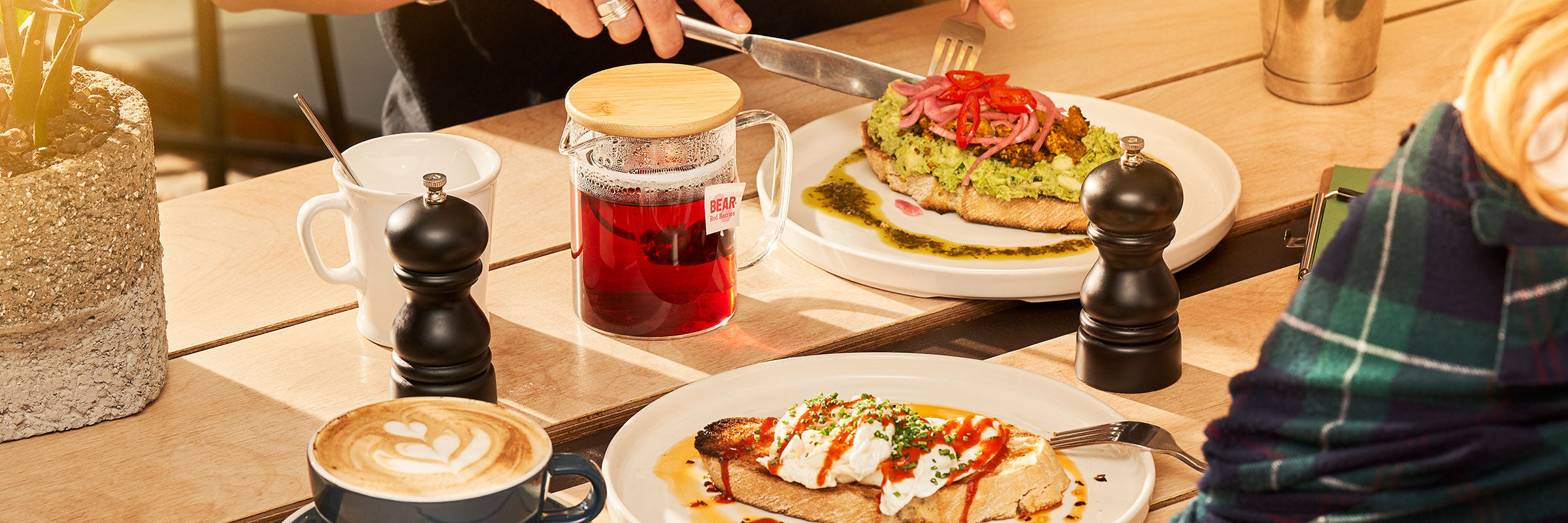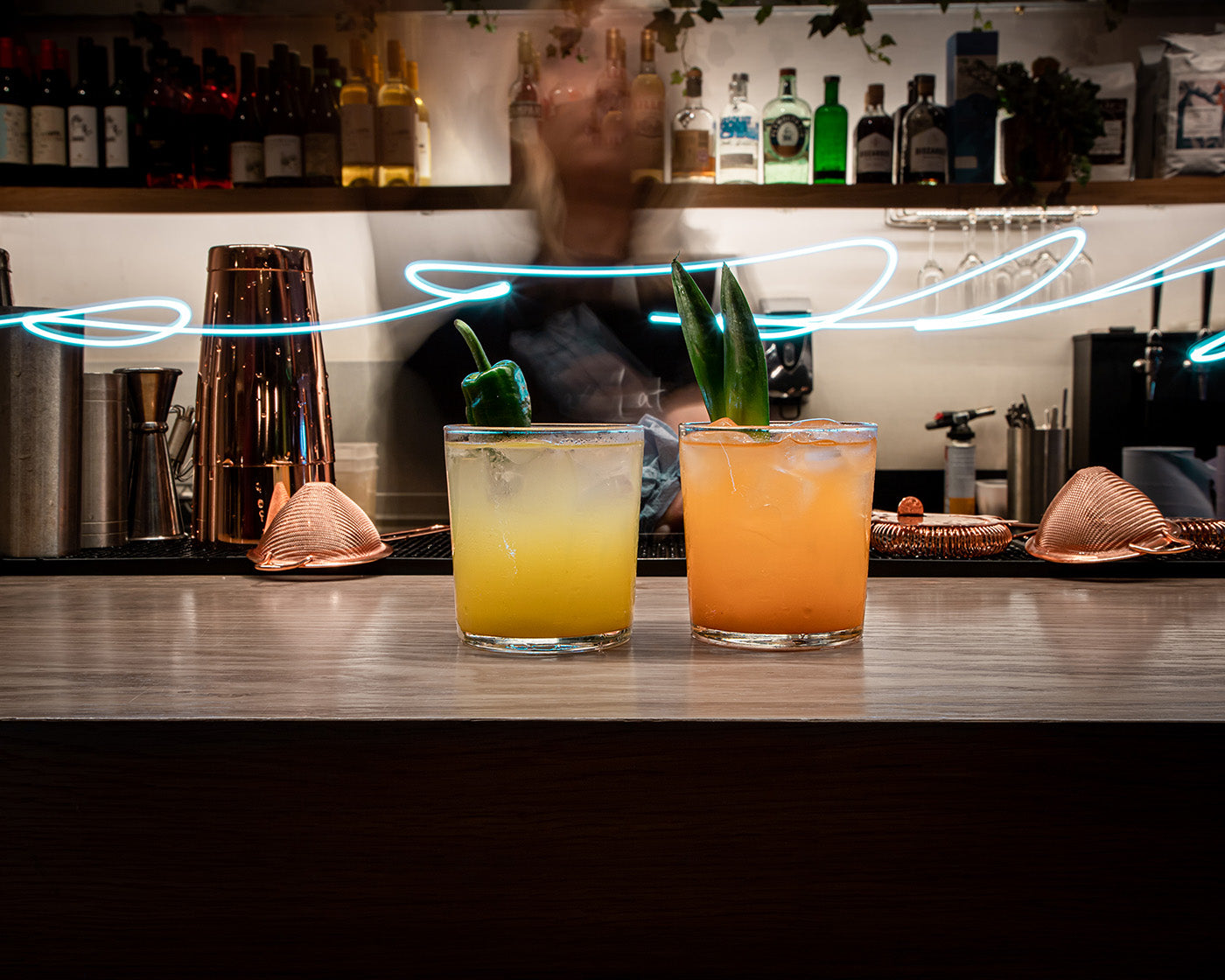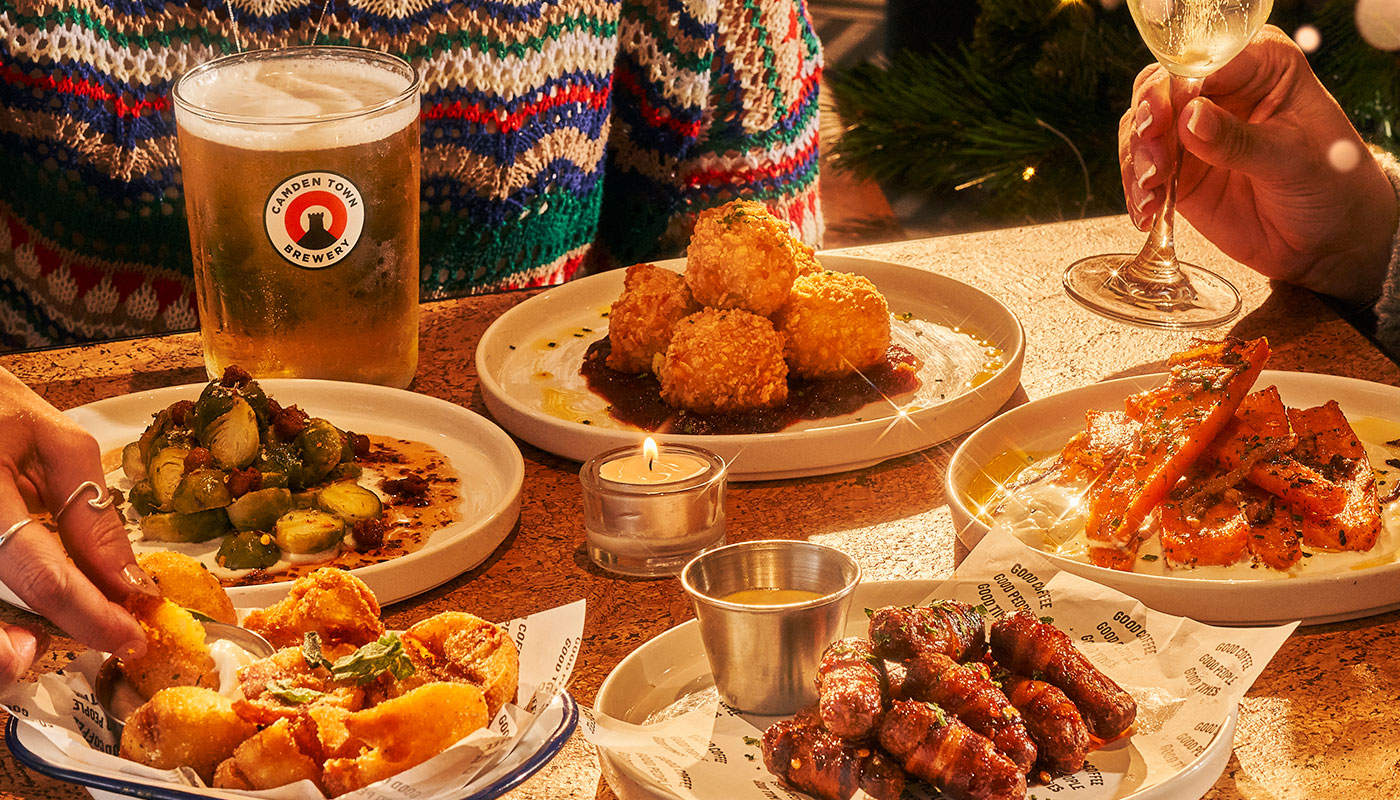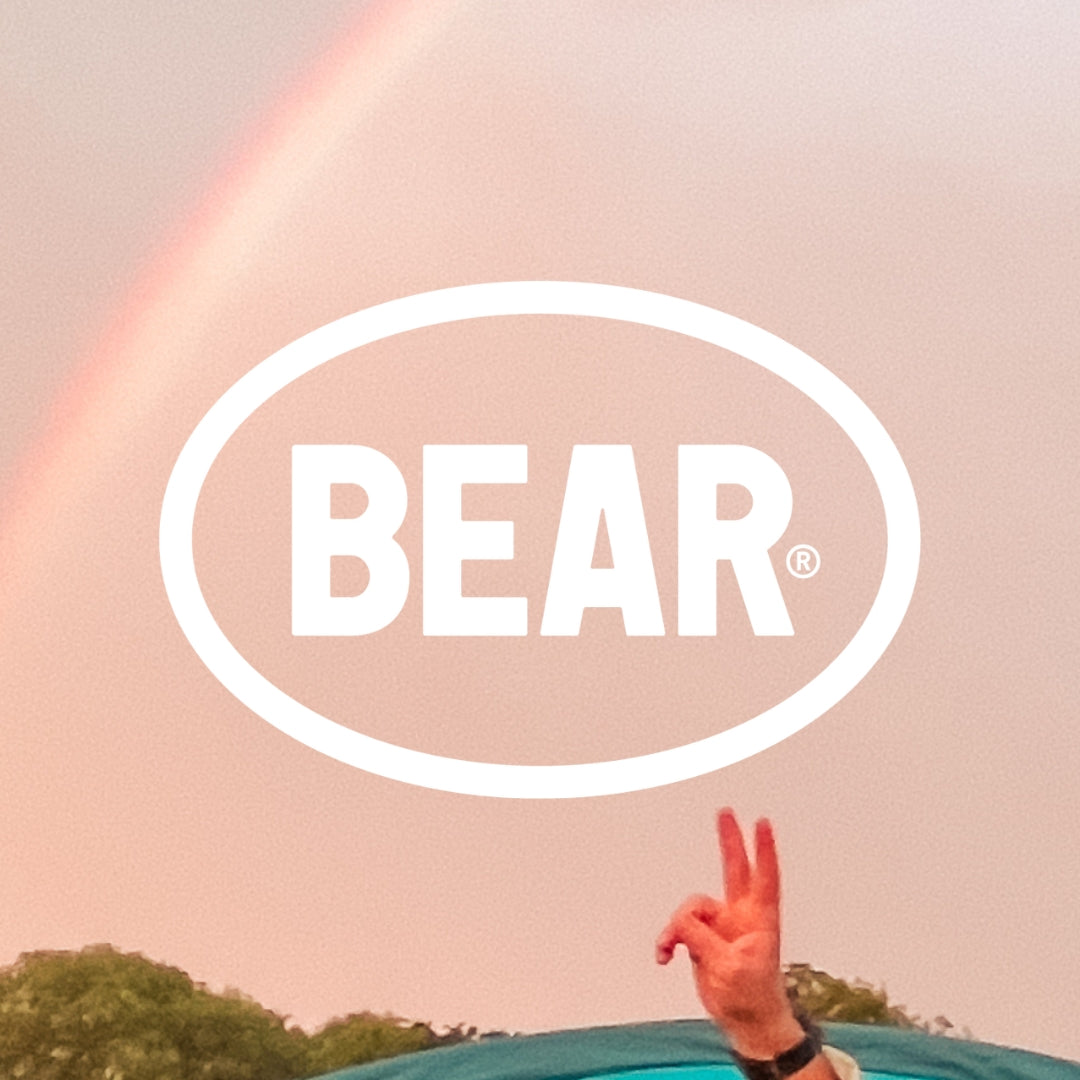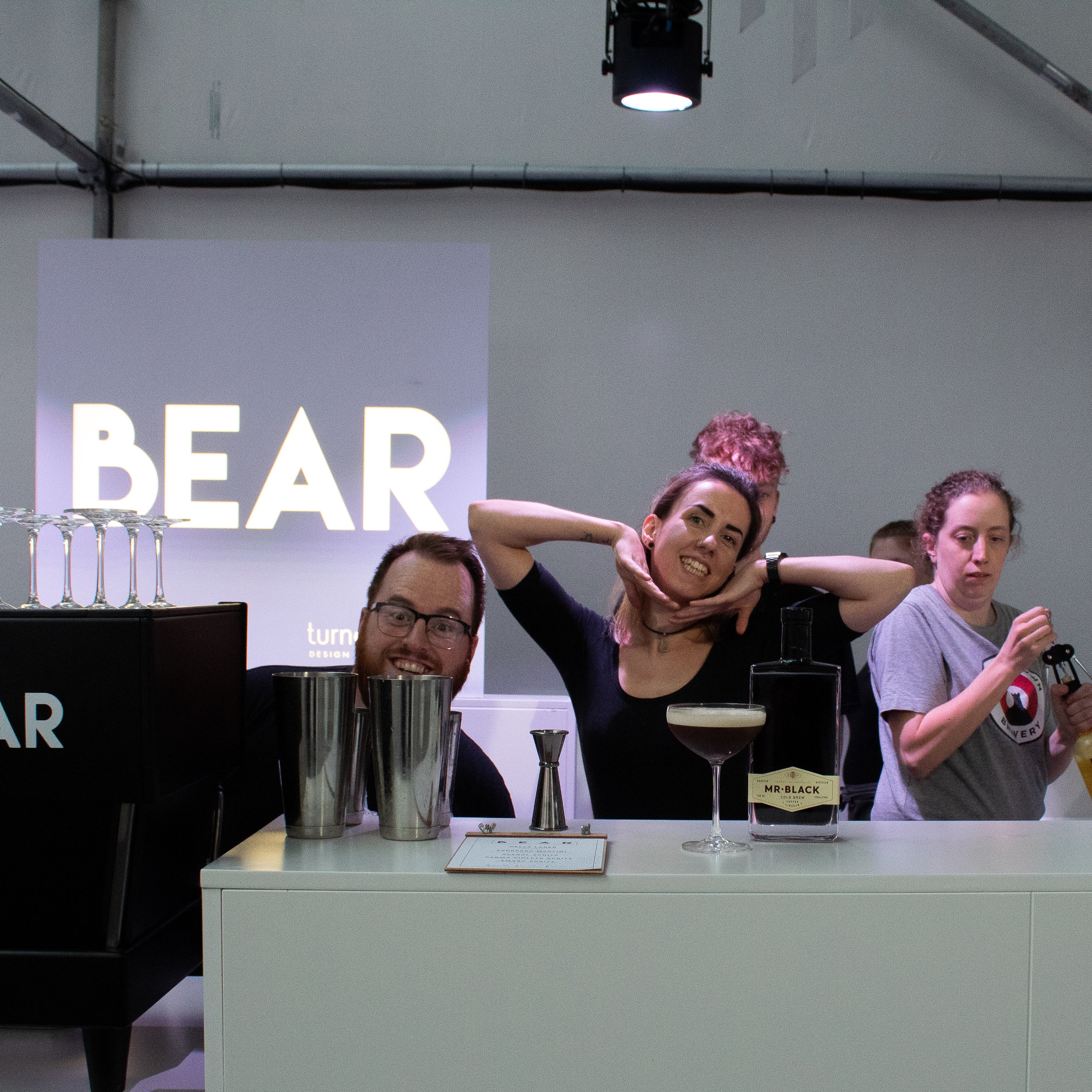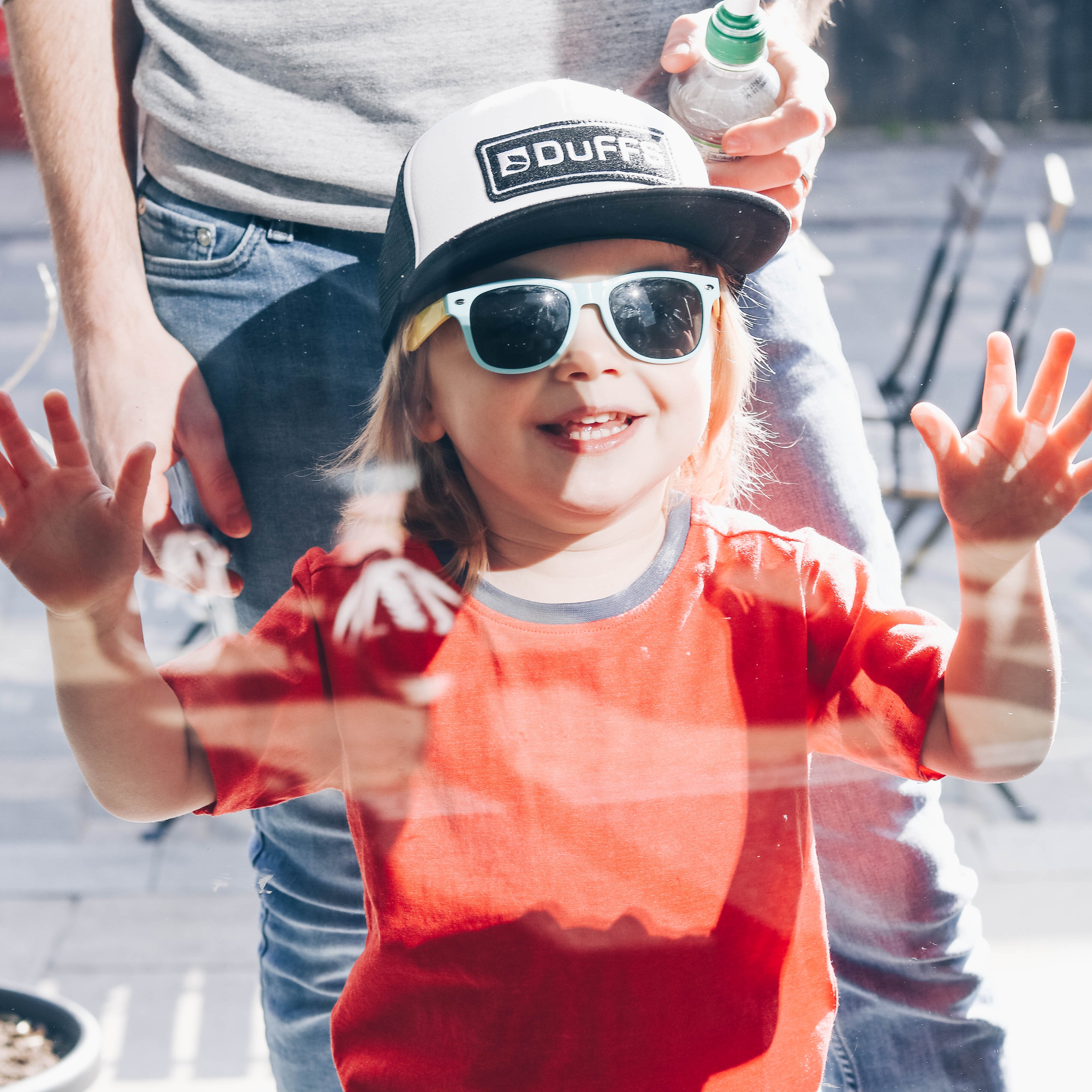First, we had a quick presentation from Henry, who told us about their travels and the lovely people they met along the way who were running each of the farms. He told us about how Myanmar is a country in transition to democracy, which means they're blessed with heaps of new opportunities and new markets. Henry explained how a robust coffee industry can be a powerful jump-start to local economic growth in post-conflict nations like Myanmar. This has previously help to lift communities out of poverty, giving them a stake in a better future. So by treating yourself a cup of our house coffee from the Mandalay region of Myanmar, you're helping to fund one of the thriving independent coffee farms. Plus, it's super delicious. Double win!
After our chat with Henry, we began cupping the coffees, giving each one a good sniff to see what sort of flavours we could smell. After all of the sniffing and whiffing, we all grabbed a spoon each and began tasting them too. The trick is to get as much air around the coffee as you can when you taste it, so there were lots of very loud SHLURRPS going on which did give us the giggles a little bit. Nevertheless, all of the coffees were surprisingly different to one another considering how close together the farms were, and (as you can see by the video) Lou & Amy donned their tasting notes clipboards and were totally in their element.
A little bit of background on our Mandalay roast:
Green Land Coffee Plantation was founded by U Sai Wan Maing in 1999 after selling his rubber plantation. It is located in Pyin Oo Lwin, formerly Maymyo, a scenic hill town known for its botanical gardens and examples if colonial architecture. Rising from the central basin, it is contained within the Shan Plateau at 1,150 metres above sea level in the east of Myanmar and forms part of the Indo-Malayan mountain system.
Green Land is one of Myanmar’s largest coffee plantations, starting out as 30 acres with a rapid expansion in the first three years. It now sits at over 580,000 coffee trees grown on 450 acres. Shade is too heavy to produce great coffee quality in some areas of the farm, and Rust has already started in the older trees, so these areas are forming the focus for the immediate future.
Once picked, the beans are immediately separated from the cherries and naturally sun-dried, then sorted in size and hand-graded to remove impurities. Although Green Land have both a wet an dry mill on the farm, they are still in their early days of production and a lot of the dry milling is done with MCG (Mandalay Coffee Group), the exporter.
